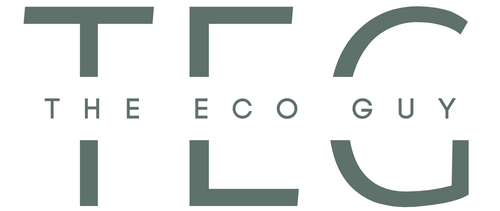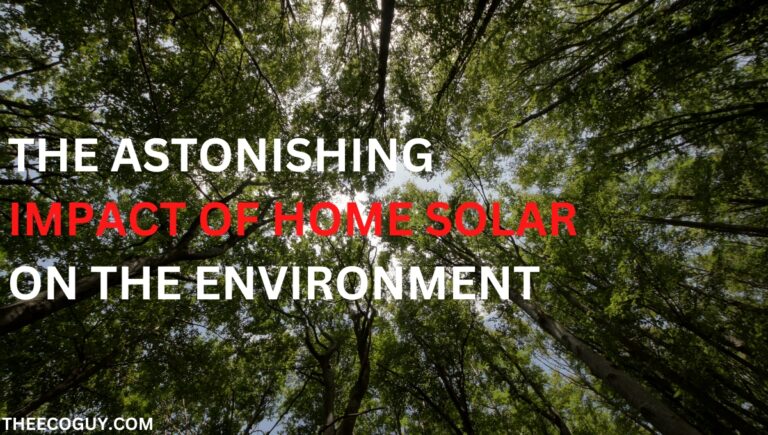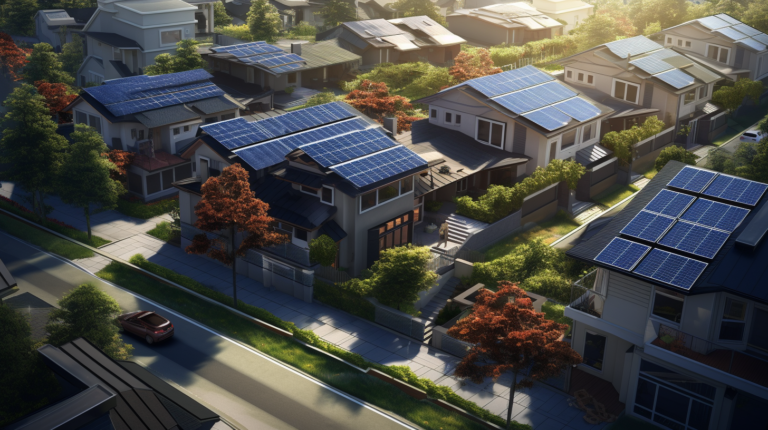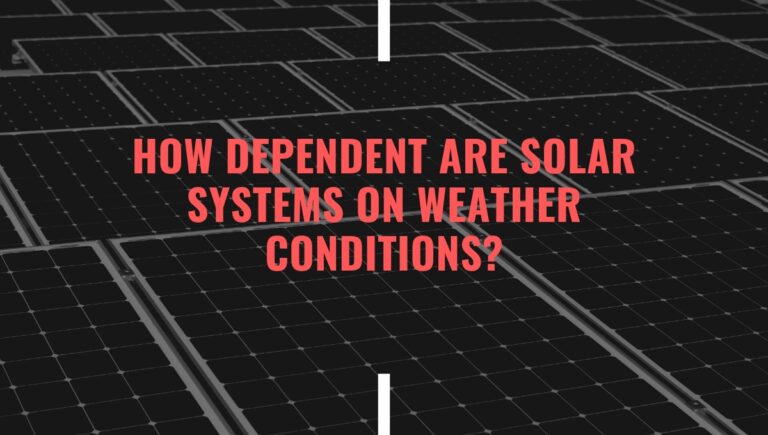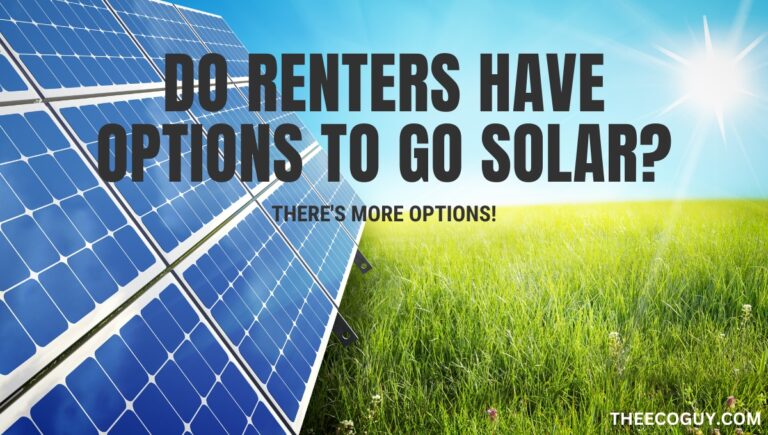Private vs. Community Solar: What’s Right? (How I Decided)
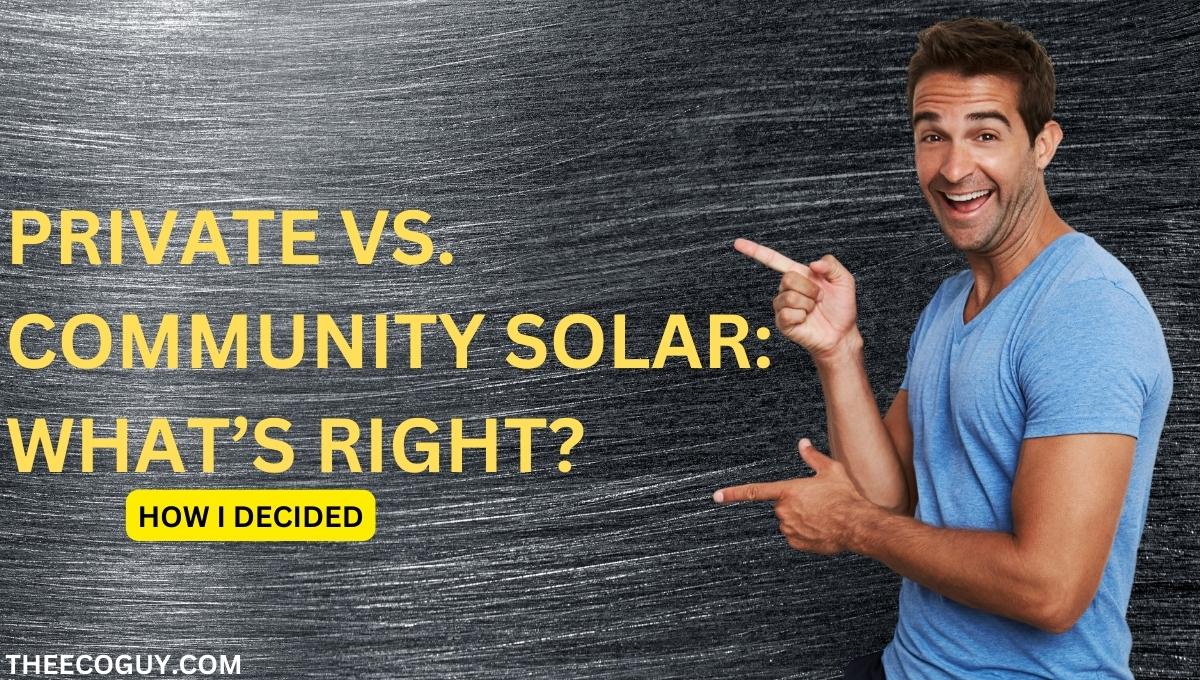
Deciding to invest in solar energy for your home is a major decision, and you’ll need to take some time to weigh the pros and cons of private versus community solar.
Homeowners in sunny regions with the necessary roof space to install solar panels, should consider private solar. On the other hand, renters and those without sufficient sunlight or adequate rooftop area for installation can benefit from community solar instead.
Are you unsure of which solar system is best for your home – private or community? This article will delve into both, comparing their pros and cons to help you make an educated decision. I’ll also provide a comprehensive overview of each type and then wrap up with my final takeaways.
What is Private Solar?
Private solar is a system owned by one individual or business. The installation takes place on the roof of their home or office, taking advantage of direct sunlight for energy production. Homeowners who opt for private solar will typically purchase the equipment and have it installed with help from a certified technician.
Benefits of Private Solar:
- Lower electricity bills: Generating your own energy through solar panels means you’re less dependent on utility companies, translating to lower monthly bills.
- Tax incentives: Homeowners may be able to take advantage of federal and state tax credits when installing a private system.
- Increase in property value: Installing solar panels can add value to your home, making it more attractive to potential buyers.
Disadvantages of Private Solar:
- High upfront cost: Installing private solar panels is expensive and usually requires a substantial financial investment.
- Maintenance fees: Homeowners will need to pay for periodic maintenance fees over the life of the system in order to keep it running efficiently.
- Lack of scalability: If you want to increase the size of your private solar system, it will require more financial resources and possibly even a larger rooftop area.
What is Community Solar?
Community solar is a system of solar panels installed in a shared location such as a park or parking lot. The energy generated from these panels is then distributed to multiple users, usually through credits on their utility bills. This makes community solar an attractive option for renters and those who don’t have enough roof space for private solar installation.
Benefits of Community Solar:
- Accessibility: Community solar makes solar energy available to everyone regardless of their roof size or ownership status.
- Lower upfront costs: The cost of purchasing and installing community solar is significantly lower than private systems.
- Scalability: Users can easily increase the size of their system by investing in additional panels.
Disadvantages of Community Solar:
- Lack of control: Since community solar is shared by multiple users, it’s harder to predict the amount of energy you’ll be receiving each month.
- Maintenance fees: Although they are usually lower than private systems, there will still be periodic maintenance fees associated with community solar.
- Mixed user incentives: There may be some users who don’t take full advantage of the system and thus reduce the amount of energy available to others.
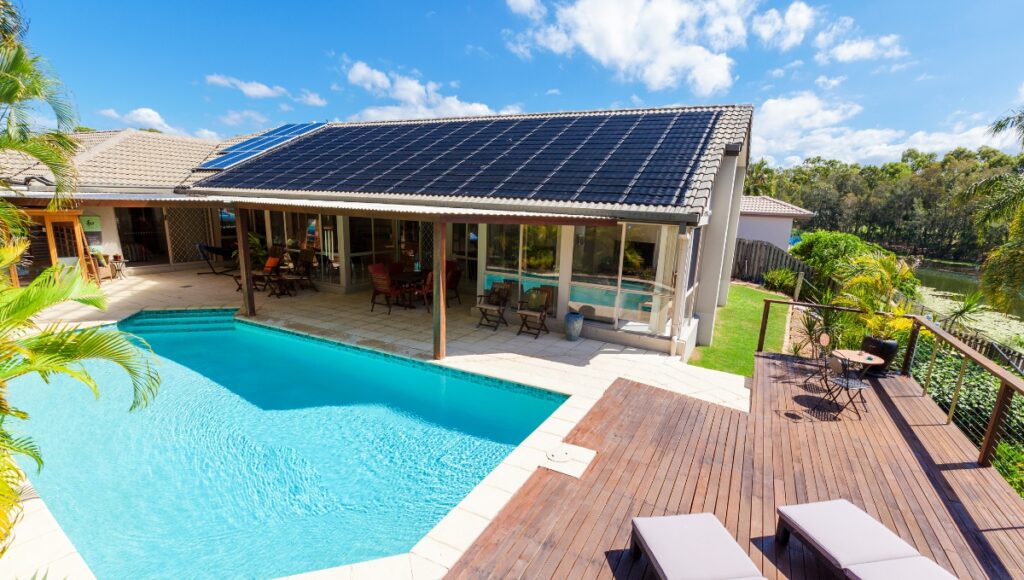
What Did the Eco Guy Go With?
I utilized EnergySage.com and was assigned a Solar Advisor who helped guide me through the solar process. After visiting the website, I answered a few questions: home zip code, own or rent, monthly electricity bill, backup battery interest, the reason why you’re interested in solar, your address, the age of your roof, your name, and your email.
When I first signed up on EnergySage.com, I received a welcoming email to begin my journey with solar energy. Not long after that, the company presented me with three precise quotes detailing its production and price per watt- I was amazed at how comprehensive their report was!
The 3 solar companies reached out to me and I set a meeting over the phone to go over the quote and ask more questions. After discussing all 3 offers, I decided to go with one that had the best options for me.
When deciding on my solar provider, I chose Private Solar because it offered me the option to own my system. Not only that but owning a solar energy system can increase home value by up to 4%, which is beneficial if I ever decide to sell in the future. Lastly, an added bonus was receiving a federal tax credit of 30% which helps reduce our family’s overall tax liability.
Final Thoughts
Overall, when considering private versus community solar for your home or business, it’s important to consider the pros and cons of each system before making a decision.
Private solar offers lower electricity bills, tax incentives, and an increase in property value but requires a higher upfront cost with maintenance fees.
Community solar is more accessible and has lower upfront costs than private systems; however, users may have less control over energy distribution and mixed user incentives could reduce the amount of available energy.
Ultimately, you should weigh all factors carefully before deciding which type of system best suits your needs. Doing so will help ensure that you reap the most benefits from your solar energy system.
Choosing to invest in either private or community solar is a great way to reduce your carbon footprint and take part in the larger movement toward renewable energy. With careful planning, both solutions can be beneficial for reducing electricity costs and helping the environment.
